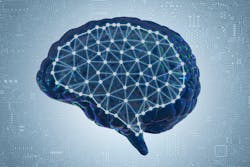Mount Sinai researchers develop age prediction model on human brain tissue using artificial intelligence
Mount Sinai researchers say they have used AI to develop an algorithm they term “HistoAge” which predicts age at death based on the cellular composition of human brain tissue specimens with an average accuracy of within 5.45 years. This tool can also identify neuroanatomical regions vulnerable to age-related changes, an indicator of potential cognitive diseases.
The researchers examined a collection of almost 700 digitized images of slides with human hippocampal sections from aged brain donors to develop the histological brain age estimation algorithm. The hippocampus is known to be involved in both brain aging and age-dependent neurodegenerative diseases, and thus is an ideal region for this analysis. The team then trained a machine learning model to estimate a person’s age at death based solely on the digitized section, a task that is impossible for a human observer to perform with any degree of accuracy. They used the difference between the model-predicted age and actual age to derive the amount of age acceleration in the brain.
When compared with current measures of age acceleration (e.g., DNA methylation), they found that HistoAge-based age acceleration had stronger associations with cognitive impairment, cerebrovascular disease, and the levels of Alzheimer’s-type abnormal degenerative protein aggregation. The study found that the HistoAge model is a reliable, independent metric for determining brain age and understanding factors that drive neurodegeneration over time.

